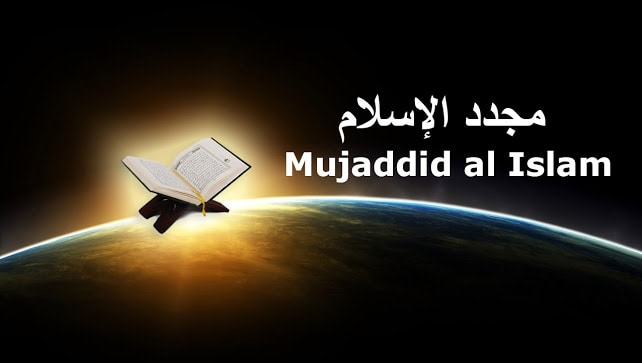Nigerians displaced by Boko Haram barter to survive
Aisha Umaru (L) holds a basin of milk as Umaru Usman Kaski holds firewood at the Bakasi…
![Aisha Umaru (L) holds a basin of milk as Umaru Usman Kaski holds firewood at the Bakasi IDP camp, Maiduguri, Nigeria. [Afolabi Sotunde/Reuters]](http://www.aljazeera.com/mritems/Images/2018/1/3/b9d828bb640740abb4b96d39ebfc327c_8.jpg)
Maiduguri, Nigeria – Cash is not king at Bakasi’s internally displaced persons (IDP) camp.
With little money to hand at the best of times, and the food aid often not what they want, bartering has become an alternative to money for the more than 21,000 Nigerians languishing at the dusty IDP camp in the country’s northeast.
Many of the IDPs have resorted to swapping the little they have for their preferred goods, whether it’s herbs and spices to make soup, groundnut to help a breastfeeding mother produce milk or laundry detergent for a family’s clothes.
A small bundle of firewood can be traded for milk. An unwanted bowl of baby fish can get you cooking oil. Peanuts are always in high demand.
“We don’t get money, that’s why we do this,” said Umaru Usman Kaski, hoping to trade a small bundle of firewood worth about 50 naira ($0.139) to support his family of eight.
While many would prefer money, cash distribution in Maiduguri, a former stronghold of the Boko Haram movement, is fraught with risk.
Around two million people are believed to have been forced from their homes since 2009 when the armed group launched their rebellion.
The UN has called the situation “one of the world’s worst humanitarian crises”.
Reports of corruption in the humanitarian crisis relief efforts are rife. Those involved, such as government officials, aid workers and soldiers, are alleged to skim from the top before distributing aid.
Many of those responding to the crisis are also concerned that with the grim economic prospects in the near future, millions of people will become dependent on aid.
Until then, Nigeria’s displaced are finding their own ways
![Nasiru Buba (R) was trading packets of laundry detergent for a tray of groundnuts. He had bought the detergent after working as a porter in the city, pushing a cart loaded with people's belongings, and wanted to trade them for groundnuts. "My wife has just delivered a baby and the breast is not coming out with milk," said Buba. "I needed to get groundnuts for her to eat so she will produce sufficient breast milk, and I don't have any money. When I got the detergent I was not in need of anything, but that changed." [Afolabi Sotunde/Reuters]](http://www.aljazeera.com/mritems/Images/2018/1/3/68ecd340877e461681c0994b6d3718fe_8.jpg)
![Abdulwahal Abdulla, a 50-year-old living in Bakasi for three years, hoped to trade this bowl of dried young tilapia fish worth roughly 150 naira for cooking oil. Abdulla, no fan of the fish, had bought them because products were scarce and it was the only thing he could buy at the time, he said. [Afolabi Sotunde/Reuters]](http://www.aljazeera.com/mritems/Images/2018/1/3/3b80b6a50e604be280d3212156425003_8.jpg)
![Falmata Madu exchanges her plate of uncooked rice for Hadisa Adamu's ground maize. Many of those responding to the crisis are also concerned that with economic prospects dim for the foreseeable future, millions of people will become dependent on aid, the vast majority of it coming from overseas. Until then, Nigeria's displaced are finding their own ways to balance what they receive with their needs. [Afolabi Sotunde/Reuters]](http://www.aljazeera.com/mritems/Images/2018/1/3/d19a8b106b07488daa4fe14db182d85b_8.jpg)
![Falmata Ahmadu swaps her bowl of maize for Musa Ali Wala's amaranth vegetables. In Bakasi, the displaced frequently swap the little they have for their preferred goods, whether it's herbs and spices to make soup, groundnut to help a breastfeeding mother produce milk or laundry detergent for a family's clothes. [Afolabi Sotunde/Reuters]](http://www.aljazeera.com/mritems/Images/2018/1/3/da8429057c0f471dbf531cf218db0cb1_8.jpg)

![Aisha Umaru Gaye holds up a pumpkin. [Afolabi Sotunde/Reuters]](http://www.aljazeera.com/mritems/Images/2018/1/3/830954d90d4741aba87202d9d6061ec9_8.jpg)
![Aisha Alhajji Audu holds four small red onions in her hand. [Afolabi Sotunde/Reuters]](http://www.aljazeera.com/mritems/Images/2018/1/3/fd23084a0b20497e93bac4c3f90c94b1_8.jpg)
![Binta Lawal holds up a bowl of poultry feed with Aisha Buba. [Afolabi Sotunde/Reuters]](http://www.aljazeera.com/mritems/Images/2018/1/3/3657a59ce956459db5d48bc3cb6c0f11_8.jpg)
![Isa Zakariya Audu (L) holds pieces of firewood while Kakaye Ahmadu Maikifi holds up a plate of okra. [Afolabi Sotunde/Reuters]](http://www.aljazeera.com/mritems/Images/2018/1/3/d213588afaa84122b874ea09059adf57_8.jpg)
![Insua Damladi holds up a sachet of salt. [Afolabi Sotunde/Reuters]](http://www.aljazeera.com/mritems/Images/2018/1/3/328325f17df44bbdaad1234e1e3dff57_8.jpg)
![Zainab Umar gives parboiled soy bean paste to Aisha Jaule in exchange for spaghetti. [Afolabi Sotunde/Reuters]](http://www.aljazeera.com/mritems/Images/2018/1/3/a1596d6f9b8d43548baaefb9aeab715f_8.jpg)
![Jibril Adamu holds okra seeds and sugared groundnuts, ready for exchange. [Afolabi Sotunde/Reuters]](http://www.aljazeera.com/mritems/Images/2018/1/3/1b31000d7ce447819f69b7582add2aff_8.jpg)
![Mohammed Ali holds up two tomatoes and some dried vegetable leaves. [Afolabi Sotunde/Reuters]](http://www.aljazeera.com/mritems/Images/2018/1/3/ce9eee5cfb5b4f1981cb34811d0fda5c_8.jpg)
![Abachi Mohammed holds six packets of chicken-flavoured instant noodles. [Afolabi Sotunde/Reuters]](http://www.aljazeera.com/mritems/Images/2018/1/3/c6424210f6be4c85992e8603d2f4ea8a_8.jpg)
![Famta Musa Tamaha holds a carton of eggs. [Afolabi Sotunde/Reuters]](http://www.aljazeera.com/mritems/Images/2018/1/3/9da84eb131d248f0a3ac08fecb380114_8.jpg)
